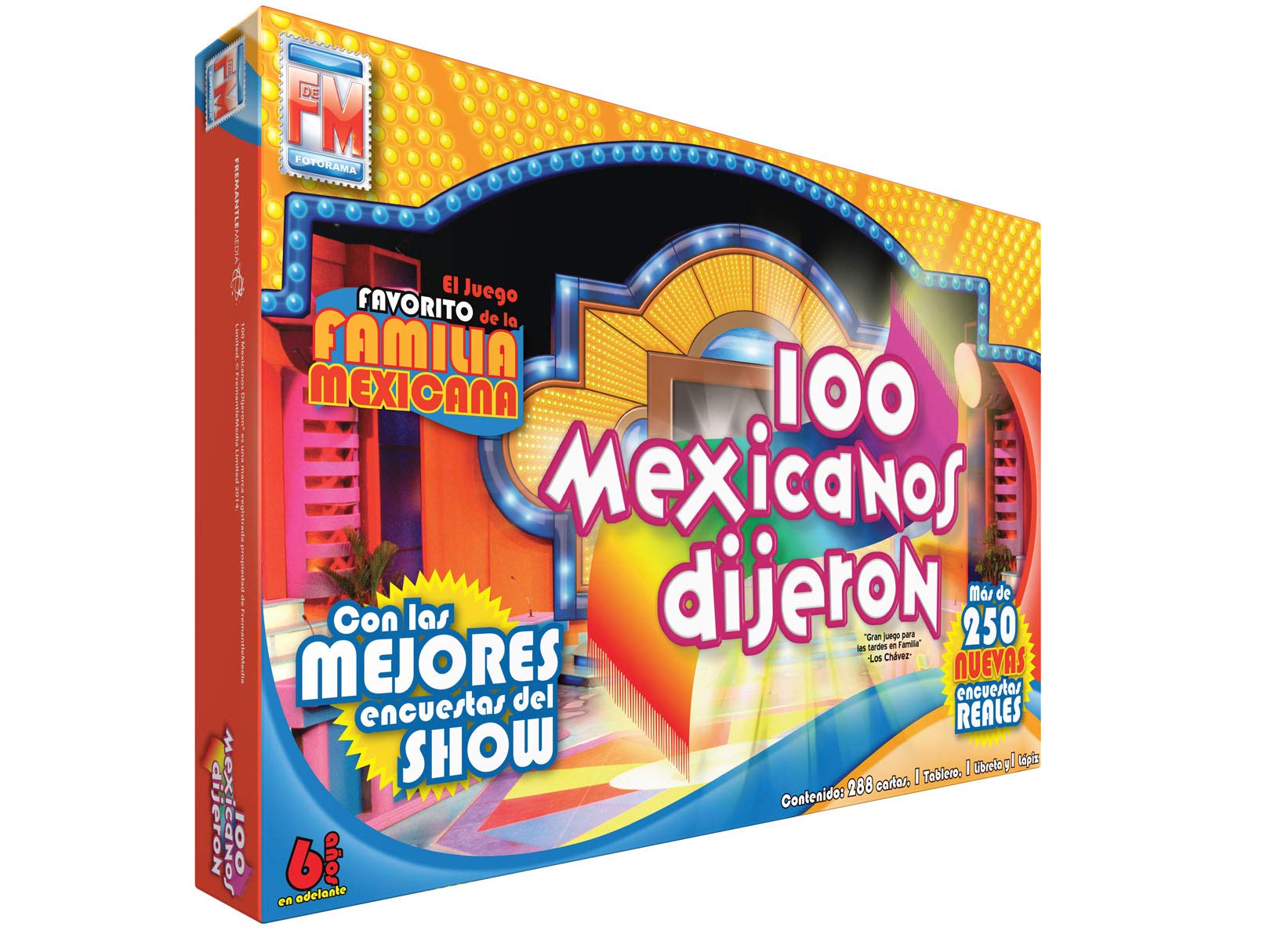Family Feud (1977)
Brief History and Background Information of 100 mexicanos dijeron
100 Mexicanos Dijeron (Spanish for “One hundred Mexicans said”) is a Mexican version of the American game show Family Feud, produced in Mexico City by the Las Estrellas network. The show was created by Mark Goodson and is based on Family Feud from the 1970s. The game show has been on air since 2001 and has been hosted by Marco Antonio Regil (2001-2006) and Adrián Uribe (2009-present). Due to the high popularity of the show, a board game of the same name has been created and is sold in Mexico.
Why is 100 mexicanos dijeron Popular?
100 Mexicanos Dijeron is a popular game show in Mexico, and the board game version is also well-known in the country. The game show and board game are significant because they provide entertainment and a way for families and friends to spend time together. The game show has been on air for over 20 years, and the board game has been around for several years as well, indicating its popularity and significance in Mexican culture.
Game Components of 100 mexicanos dijeron
– 480 question cards
– 39×26 cm board
– Pencil
– Notepad
Game Setup of 100 mexicanos dijeron
The game is played with two teams, each consisting of five players. The teams take turns answering survey questions, with the goal of guessing the most popular answers.
Gameplay Mechanics of 100 mexicanos dijeron
The game is played in rounds, with each round consisting of a survey question and multiple answers. The team that guesses the most popular answer earns points, and the team with the most points at the end of the game wins.
Game Objective of 100 mexicanos dijeron
The objective of the game is to guess the most popular answers to survey questions and earn the most points.
Player Experience
Players can enjoy the game by testing their knowledge and guessing the most popular answers to survey questions. The game can be played with family and friends, making it a fun and social activity.
Variations and Expansions (if applicable)
There are different versions of the game, including a mini size version and a third edition by Fotorama USA. However, there is no information available on any expansions.
Related Games
100 Mexicanos Dijeron is related to the American game show Family Feud, on which it is based.
Are there any similarities between the game shows “100 mexicanos dijeron” and “American carrom”?
Yes, there are similarities between the game shows “100 mexicanos dijeron” and “American carrom.” Both involve contestants answering questions or solving puzzles to win prizes. However, “American carrom game rules” involve a specific set of guidelines for playing the game, which differs from the format of the game show.
Conclusion
100 Mexicanos Dijeron is a popular game show in Mexico that has been on air for over 20 years. The board game version of the show is also well-known in the country and provides entertainment for families and friends. The game is played with two teams, and the objective is to guess the most popular answers to survey questions and earn the most points. The game can be enjoyed by testing knowledge and guessing the most popular answers, making it a fun and social activity.
Game Components of Family Feud
How To Setup Family Feud
To set up the game, start by dividing players into two families or teams. Each team selects a captain. The game board is placed in the center, and the question cards are shuffled and prepared. Score sheets are distributed to each team. The objective is to mimic the TV show’s format, where teams take turns answering survey questions.
Gameplay Mechanics and Game Objective
Player Experience
Playing Family Feud is an engaging and entertaining experience that mimics the excitement of the TV show. Players must think quickly and strategize about which answers are most likely to be on the survey’s top list. The game encourages teamwork and fast thinking, making it a fun and competitive activity for families and friends.
Pros
Cons
Personal Thoughts on Family Feud
Family Feud is perfect for those who enjoy trivia games, social interactions, and a bit of healthy competition. It’s ideal for family game nights, parties, or any gathering where you want to engage everyone in a fun and interactive activity. The game is suitable for a wide range of ages, making it a versatile addition to any game collection.
We are supported by our audience. When you purchase through links on our site, we may earn an affiliate commission, at no extra cost for you. Learn more.

